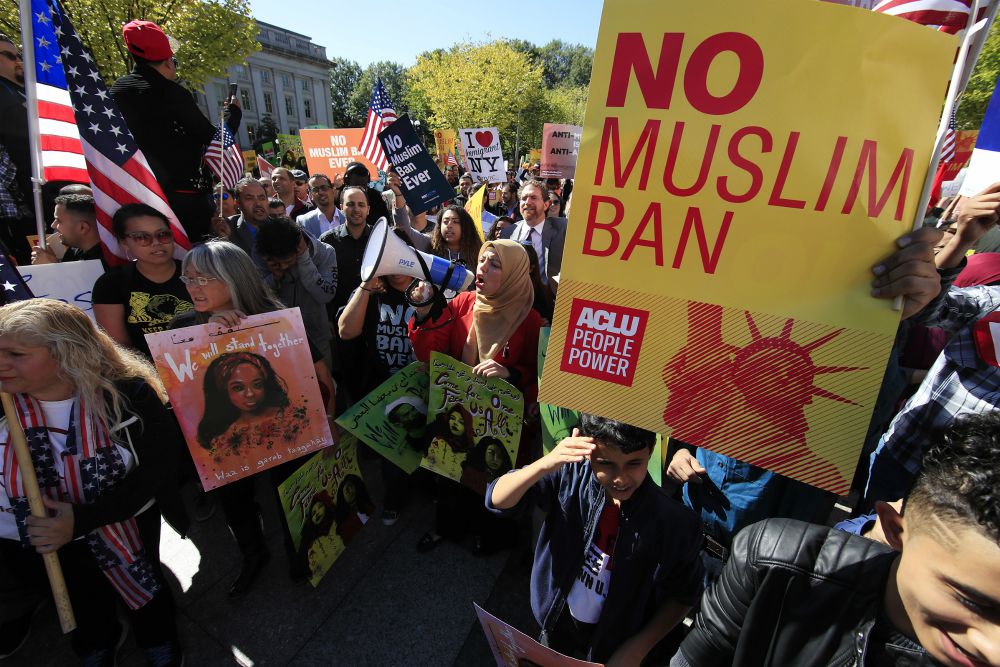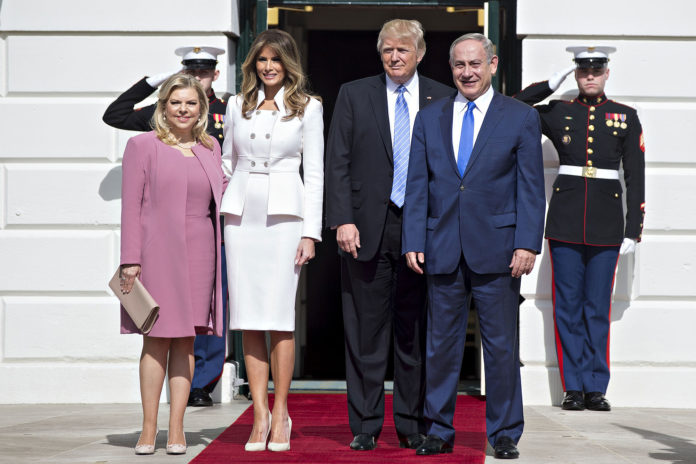Context
For many Presidents Trumps’ decision to move the US Embassy from Tel Aviv to Jerusalem came as a surprise. However, the changes in the political, economic and security landscape of the Middle East have been pointing in this direction for a number of years now. PoliTact had noted this trajectory in July 2015 as the emerging ‘Outside In Approach’ to the Middle East peace process and Kashmir (https://www.politact.com/the-emerging-outside-in-approach-to-israeli-palestinian-conflict-afghan-reconciliation-and-kashmir-issue/). The variables influencing this move involve the dynamics associated with the War against Extremism, Arab Spring, Iran-Saudi tussles, and the ongoing Syrian conflict.
The December 6, 2017 US declaration to transfer its embassy from Tel Aviv to Jerusalem, under the influence of its America First Doctrine, has marked a new phase for the shift in the balance of power from the Core to the Peripheral Islamic world, a theory that has been discussed in detail in this space. It has reinforced the path that is bringing the peripheral Muslim nations represented by Turkey, Iran, and Pakistan, closer. These states have harshly criticized the American move.
This may have been one of the reasons why Pakistan’s military and security assistance is now in jeopardy. President Trump had threatened to penalize those countries that opposed the American decision to recognize Jerusalem as the Israeli capital in the December 21st UN General Assembly vote. The US ambassador to the UN, Nikki Haley, had commented that Washington will not forget the countries which “disrespected” America by voting against its unilateral recognition.
Meanwhile, Pakistan’s ambassador to the UN, Maleeha Lodhi, had stated that the American move was a serious violation of international law and had gravely dented the Middle East peace process. She went on to add the US should refrain from using undiplomatic and threatening moves to garner support for its decision. On the other hand, Turkish President Tayyip Erdogan had warned before the US decision that Jerusalem is the red line for Muslims. He clarified that considering Jerusalem as belonging only to Israel will result in Turkey ending ties with Israel.
The Sunni Arab nations, with the focus on GCC, reflect the other side of the equation. These Arab nations are steadfastly holding on to the western powers whose support is critical for their survival. Media reports indicate that Saudi Arabia and Egypt may have privately consented to the American move.
The key question now is how the dramatic changes in the political, security, and economic dynamics of the Core Islamic world, represented by Saudi Arabia, Iraq, Yemen, Syria etc., will now impact the fate of the Peripheral. Our previous assessment had noted how the predicament Middle East finds itself in would impact South and Central Asia, the including Afghanistan conflict. We are now entering a stage where that distinction will be harder to maintain, as it will represent one wide theater of operations, one on the West of Iran (South and Central Asia), and the other to the East (Middle East).
Analysis
Implications of the Jerusalem Decision
The Core versus Periphery theory also stipulated that under threat the Core Muslim nations which carry exclusive religious significance, will likely reach out to the Peripheral nations for support and protection. This has now manifested in the form of Saudi Arabia seeking Pakistan’s assistance for the alliance formulated to counter Daesh. The former chief of Pakistan’s Army, General Raheel Sharif now heads the Saudi led military alliance called Islamic Military Counter Terrorism Coalition (IMCTC).
While the liberal global order is itself going through modification, Pakistan appears to be on a gradual slide out, and so is NATO member Turkey, while Iran departed a long time ago. Ironically, Saudi Arabia has reaffirmed it membership to the liberal order. But what does the America First Doctrine mean for the Core versus Peripheral Muslim world theory? The following is a list of some key implications of the American decision to move its embassy to Jerusalem.

1. Countering the Ideological Narrative
With the recent US decision to move its embassy, and now deteriorating relations with Pakistan, the perception is taking hold that the US and the War against Terror is against Islam. Previous US administrations have gone to great lengths to avoid strategies that convey or strengthen the perception that War against Extremism is against Islam. On the other hand, the extremists have used a narrative to convert the war against extremism into a religious war.
To recruit and motivate, extremists have claimed that Muslim governments for the most are not credible as they achieve power with Western support, are corrupt, and serve their interests at the cost of their citizens. This lack of credibility was what sparked the Arab Spring which resulted in the removal of many of the authoritarian rulers in the Middle East.
The Jerusalem decision will pose acute challenges in the way of countering the ideological narrative being used by the extremists. The extremist groups will utilize this against the role of UN and its failure to peacefully resolve the long simmering Palestinian issue. While Daesh has been physically defeated in Iraq and Syria, reports indicate they are strengthening in Afghanistan, posing an emerging threat to the reconciliation efforts, and to the wider South and Central Asia region. Daesh and Associates are also likely to exploit Muslim resentments related to Kashmir and Rohingya genocide. On the other hand, AQ in the India Subcontinent (AQIS) is making inroads in Kashmir. This scenario was explored in PoliTact’s April 2015 assessment: Can IS Jeopardize Afghan Peace Process and Pakistan India ties? (https://www.politact.com/emerging-scenarios-can-is-jeopardize-afghan-reconciliation-pakistan-india-ties/)
2. Decreasing Private Space for American Allies to Cooperate
As indicated above, the US relations are already under stress with other major Islamic nations, such as Turkey and Iran. Now worsening ties with Pakistan will further decrease American leverage in the Islamic world, which will be, and is being exploited by China and Russia. Thus the liberal order will be further weakened.
The Jerusalem decision will shrink the private space for Muslim nations and their civilian and military leadership, including Pakistan, to continue their cooperation with the US in the war against extremists. The loss of credibility is likely to trigger Arab Spring 2.0 in the Middle East, especially if the two-state solution is eroded any further. If the variance in the Public and Private stances of the Muslim leaders widens too much, naturally it will become untenable to the point where the narrative of the extremists will look more realistic.
In case of Pakistan, tensions are likely to mount. There is a difference of opinion between US and Pakistan on how to approach the Afghan peace process. At this juncture, US wants to pressure the Afghan Taliban and Haqqani network with the assistance of Pakistan, before attempting the peace process.
On the other hand Pakistan thinks the military tactics and strategies have not worked up to this point, and thus it’s time to put more emphasis on reconciliation. Moreover, Russia, China, and Iran consider the Afghan Taliban to be the bulwark against the spreading influence of groups like Daesh that carries global ambitions. The Jerusalem decision implies that America is not interested in a negotiated settlement of long simmering conflicts, to include Afghanistan and Kashmir.
With the deteriorating US-Pakistan ties and sanctions, the American position is likely to be weakened. Especially when China is also attempting to pull Afghanistan into its One Belt One Road economic vision. In this, the significance of Saudi Arabia will increase, and it will attempt to create divisions between the Peripheral nations, and to keep Pakistan from drifting too far from the liberal order.
3. The Role of Saudi Arabia
Saudi Arabia is increasingly caught in a quandary. It needs the support of the Peripheral nations, especially Pakistan, to counter the spreading forces of extremism. However, as pointed out earlier, these Peripheral nations are in the process of moving out of the liberal world order. This poses unique challenges for the Kingdom.
Meanwhile, Saudi Arabia is entangled in a bitter regional rivalry with another Peripheral nation, Shiite Iran. The Saudis are also not on the same page with Turkey when it comes to the matters of Palestine, Iran, Lebanon, Libya, and to some extent Syria. These reasons resulted in rupturing of its relations with Qatar. Furthermore, these factors have pushed the Saudis closer to Israel and the US, and inadvertently to India, at the cost of its ties with Core and Peripheral Muslim nations.
Convergences and Risk Mitigation
While there are differences along the lines pointed to above, there are also areas where convergences exist and which can be exploited if there is a will. At the same time, if these common interests are not built upon they also pose serious risks. At this stage of the War against Extremism, if these threats are not mitigated, they can now cause interstate conflicts.
1. Now that the US has taken the decision of moving its embassy to Jerusalem, there is an urgency to understand the wider peace plan being envisioned by the Trump Administration and for preserving the two-state solution. Delaying the unveiling of this plan can cause extremists to exploit the circumstances, especially against the Muslim allies of the US. This will make it impossible for them to cooperate in the war against extremists.
2. There is consensus amongst all players that extremist groups with global ambitions, like AQ and Daesh, need to be countered. The disparity exists on the next level of non-state actors that are known as Associates of AQ and Daesh. The variance also persists when it comes to the third kind of non-state actors, such as Kurds that have nationalist aspirations.
No one wants the extremists groups with local ambitions to become fully integrated with groups with global agenda and transform into a much bigger threat. Dealing with the grievances of these associates with local aspirations can deliver the biggest blow to groups like AQ and Daesh. This remains the best strategy to win the war against extremists. Furthermore, the strategy has the capacity to bring the global powers, including the Core and the Peripheral Muslim nations, to the same page.





